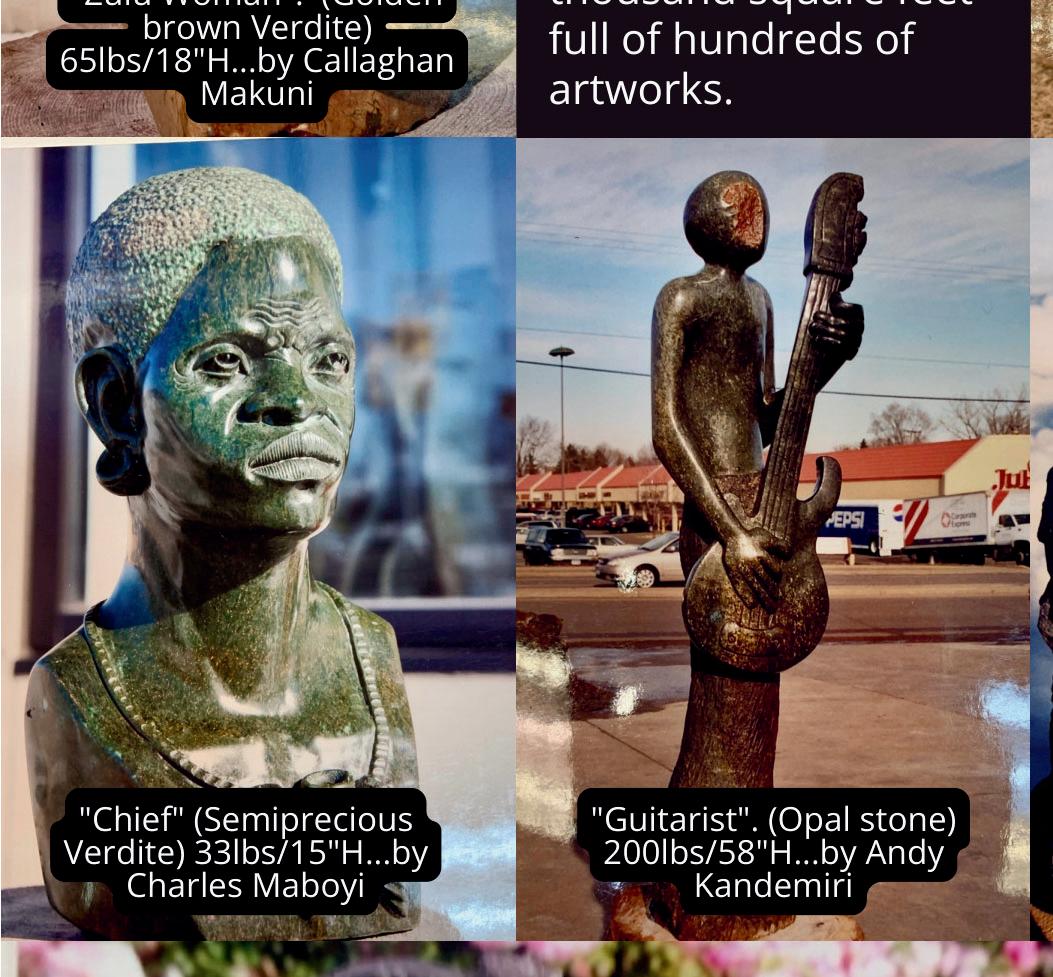



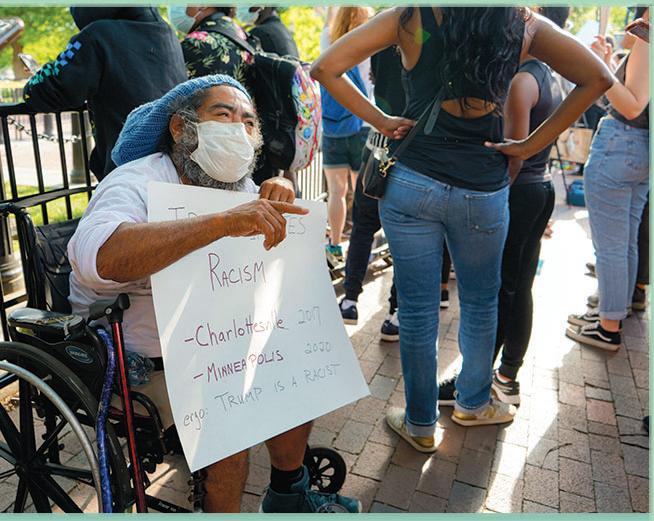







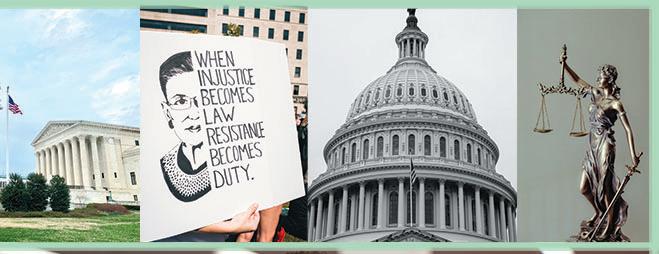




























President Joe Biden delivered a resounding State of the Union Address, resonating with historical echoes and impassioned calls for unity and action. In a stark departure from his predecessor, Biden underscored his deep understanding of American identity, emphasizing the nation’s unique values and the diverse tapestry that binds its people together.
“Because, unlike my predecessor, I know who we are as Americans,” Biden declared as Democrats in Congress cheered while some Republicans could be heard hissing and ranting at the President. “We are the only nation in the world with a heart and soul that draw from
ByThe US military started airlifting embassy staff out of Haiti overnight as the Caribbean island descends further into chaos. Rival gangs have joined forces to overrun the country’s capital, Portau-Prince, in an attempt to force the resignation of the acting president, Ariel Henry.
The gang leader behind the violence, Jimmy “Barbecue” Chérizier, has warned there will be a “civil war that will lead to genocide” if Henry does not step down.
Over the past week, Haiti’s gangs have carried out a series of coordinated attacks on prisons and police stations, breaking more than 3,800 criminals out of Haiti’s two biggest jails,

old and new. Home to Native Americans whose ancestors have been here for thousands of years. Home to people from every place on Earth,” Biden continued, setting the stage for a heartfelt exploration of the American experience.
Acknowledging Americans’ varied origins, Biden remarked, “Some came freely. Some were chained by force. Some when famine struck, like my ancestral family in Ireland. Some to flee persecution. Some to chase dreams that are impossible anywhere but here in America.” He spoke to the shared journey of every American, emphasizing, “That’s America, where we all come from somewhere, but we are all Americans.”
Transitioning to the contentious immigration issue, the President asserted his readiness to address border challenges. “We can fight about the border, or we can fix it,” he
demanded. “I’m ready to fix it.” The commitment to finding solutions underscored Biden’s determination to bridge divides and work toward comprehensive immigration reform.
Biden then pivoted to a seminal moment in the fight for civil rights, commemorating the 59th anniversary of the march in Selma, Alabama. “A transformational moment in our history happened 59 years ago today in Selma, Alabama. Hundreds of foot soldiers for justice marched across the Edmund Pettus Bridge, named after a Grand Dragon of the KKK, to claim their fundamental right to vote,” he stated.
The President paid homage to the sacrifices made during this historic march, vividly recalling, “They were beaten bloodied and left for dead. Our late friend and former colleague, John Lewis was at the march. Five months later, the Voting Rights Act was
signed into law.” The historical reflection served as a poignant backdrop to Biden’s urgent call to action against contemporary threats to voting rights. “Voter suppression. Election subversion. Unlimited dark money. Extreme gerrymandering,” he said, squarely pointing the finger at Republicans. In honor of John Lewis and the heroes of the civil rights movement, the President fervently implored Congress, saying, “Pass and send me the Freedom to Vote Act and the John Lewis Voting Rights Act!” President Biden condemned book banning in a forceful rebuke of actions that undermine core American values, stating, “And stop denying another core value of America our diversity across American life and banning books. It’s wrong! Instead of erasing history, let’s make history! I want to protect other fundamental rights!”

while also laying siege to the country’s port and airport. Haiti is already facing a humanitarian crisis. It is among the poorest countries in Latin America and the Caribbean, with 90% of the population living below the poverty line. And following the recent wave of violence, around 15,000 people who
were already housed in internal displacement camps have been forced to leave again. Henry came to power in 2021 under a deal agreed with the opposition following the assassination of Haiti’s president, Jovenel Moïse. Henry is widely considered illegitimate by the Haitian public and was due to stand

down by February 7. But he seems to be extending his stay.
The country last went to the polls in 2016 and there is no timetable for new elections. Over the past six years, the Haitian parliament has
I would guess that every Minnesotan knows of somebody who has been negatively impacted by the opioid crisis.
As the Minneapolis city council representative of District 4 in Minneapolis, I know for a fact that many of my constituents have been. Between 2020 and 2021, Minnesota saw over 1,000 drug overdoses, many of them from opioids. The fentanyl crisis has rightfully garnered much media attention, it has devastated our communities and has especially targeted marginalized communities, exacerbating existing disparities. However, even legal prescription opioids have claimed the lives of thousands annually across the United States.
During my previous career as the Director of Health Policy and Advocacy at NorthPoint Health & Wellness and my current position on the Minneapolis City Council, I have spent a great amount of time considering how to combat both the fentanyl crisis and the opioid crisis as a whole. A key part of
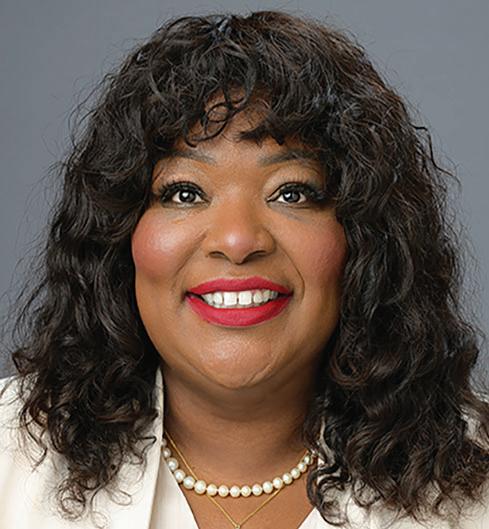
combatting the opioid crisis is lessening our dependence on opioid prescriptions in a hospital setting. A staggering, 35.5 opioid prescriptions were written for every 100 persons in Minnesota in 2018. Much of this has to do with the fact that opioids are cheaper to prescribe for many patients than opioid alternatives.
At the federal level, there is exciting legislation to change that fact for one of our most vulnerable demographics, our seniors. The bipartisan Alternatives to PAIN Act would increase access for seniors to non-opioid pain management options in Medicare Part D. This bill would ensure that Americans on Medicare Part D would never pay more for a non-opioid than they would
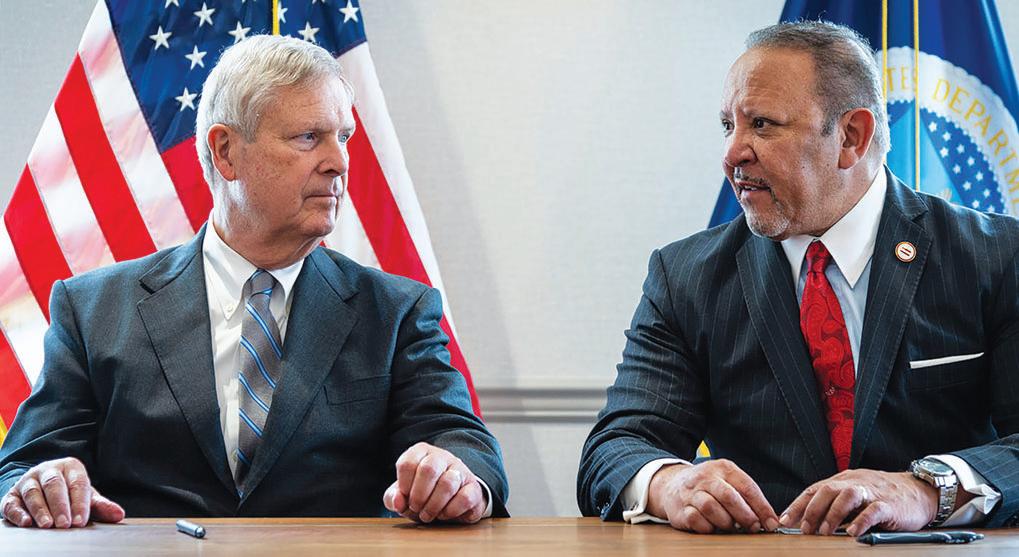
The National Urban League has unveiled its highly anticipated 2024 State of Black America Report, a comprehensive benchmark and thought leadership document offering profound insights into racial equality in the United States.
Established in 1976 under the visionary leadership of the late Mr. Vernon E. Jordan Jr., the organization’s fifth president, the report remains a cornerstone for understanding the multifaceted challenges faced by Black Americans across crucial domains such as economics, employment, education, health, housing, criminal justice,

and civic participation. This year’s edition continues the tradition of featuring insightful commentary from influential figures in various sectors, providing a comprehensive view of the complexities of the current landscape. Economic empowerment is central to the National Urban League’s mission, and the Equality Index is a powerful tool to measure progress for Black Americans relative to whites.
Attributing the mission’s core to economic empowerment, National Urban League President Marc Morial emphasized the nuanced progress revealed by the Equality Index. “Civic engagement and health show improvement among African Americans; however,
House panel gives go-ahead to basic income pilot program
Supporters believe providing a basic monthly income to those who need it removes barriers to full-time employment, provides families a financial safety net and improves outcomes for children.
Opponents say giving people monthly payments with no strings attached creates opportunities for fraud and is an irresponsible use of taxpayer dollars.
A bill approved, as amended, on a splitvoice vote Tuesday by the House Children and Families Finance and Policy Committee would attempt to settle that argument. But those answers come with a significant cost. The bill’s next stop is the House Human Services Finance Committee.
Sponsored by Rep. Athena Hollins (DFL-St. Paul), HF2666 would implement a basic income program to provide direct cash payments of at least $500 per month for 18 to 24 months to eligible recipients around the state. It would be paid for with a one-time $100 million appropriation from the
General Fund in fiscal year 2025. Hollins said the bill would build upon similar programs in the state and around the country.
“This is a pilot program … targeted at Minnesotans receiving public benefits or with an income at or below 300% poverty guidelines,” she said. The payments are intended to “disrupt” poverty, build wealth and advance equity, in addition to supporting a recipient’s basic needs. The money could not be included when determining eligibility for other public assistance programs but is intended to supplement and not replace those benefits.
Mercedes Yarbrough is a participant in a guaranteed income program started in 2022 by the City of St. Paul to provide more than 300 lowincome families with $500 monthly payments for two years. She said it helped her family persevere after her brother was shot and needed care that required her husband to take time away from work.
“I am immensely grateful for the support it has provided to my family when we
needed it the most,” she said. The bill would direct the Department of Human Services to award competitive grants to local and tribal governments along with nonprofit organizations that would, in turn, create and implement customized basic income programs.
At least one independent research-based entity would be chosen to evaluate the program and an annual report to the agency would be required along with a report due to the Legislature by January 2027.
Rep. Walter Hudson (R-Albertville) outlined several concerns with the bill including a lack of safeguards as to how nonprofits would spend the money or who would get it, noting language that explicitly forbids grantees to require recipients to provide other proof of income, residency, citizenship or other identifying information.
“This program very explicitly would provide support to illegal immigrants or persons claiming to be someone other than they actually are,” Hudson said. “We’re not even going to question that,
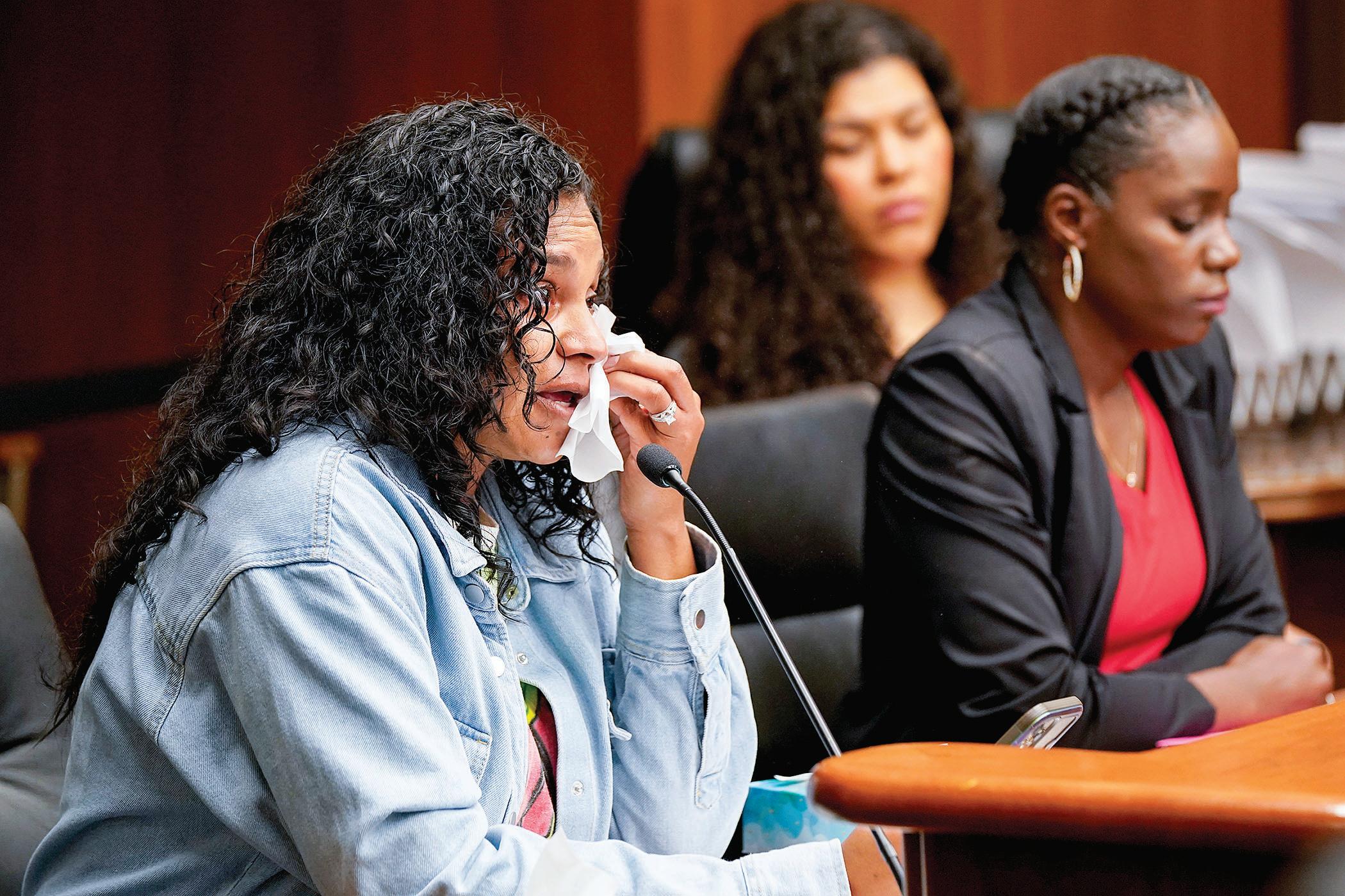
there’s not going to be any documentation whatsoever.” Hollins said the program will be most effective if it extends to all members of a community, whether documented or not,
historic investmentHeights is an approximately $750 million redevelopment of the 112-acre former site of the Hillcrest Golf Course at Larpenteur Avenue and McKnight Road. The project
will not only address critical housing needs but will also have a unique emphasis on environmental sustainability. The Heights is designed to be an all-electric community seeking LEED-Platinum Certification.
Twin Cities Habitat’s construction on four blocks (12 acres) of the site is set to begin in late spring. The project will be the location of this fall’s Jimmy & Rosalynn Carter Work Project, an annual event that celebrates the impact that President and the late Mrs. Carter have had on Habitat’s worldwide mission.
From September 29 through
October 4, 2024, thousands of volunteers, celebrities, elected officials, and other VIPs will gather to work on 35+ homes in this historic development and raise awareness for the critical need for affordable housing in the Twin Cities and around the world. Over its nearly 40year history, the Carter Work Project has touched lives around the world by inspiring more than 106,000 volunteers across the U.S. and in 14 countries to build, renovate, and repair 4,417 Habitat homes. Garth Brooks and Trisha Yearwood will continue the Carters’ legacy and serve as hosts of the Carter Work Project in St. Paul. Learn more about the Jimmy & Rosalynn Carter Work Project.
The Heights project is a team effort. The St. Paul Port Authority is leading the site redevelopment. Sherman Associates is the lead housing developer. Twin Cities Habitat for Humanity and JO Companies are also contributing housing.
“Twin Cities Habitat for Humanity is honored to be a partner in this transformative project on the Greater East Side that will have a meaningful impact on our region’s housing
shortage,” said Chris Coleman, President & CEO of Twin Cities Habitat for Humanity and former St. Paul mayor. “The inclusion of Habitat homeownership at The Heights is essential to unlocking generational wealthbuilding for working-class families and creating a more vibrant, equitable City of St. Paul.”
In 2023, the state of Minnesota took a historic step to address the housing crisis by appropriating $1 billion to support affordable housing in the state, the state’s largest investment in affordable housing. The state challenged public, private, and nonprofit institutions to find bold new solutions to expand access to affordable housing, address housing disparities, and support working-class Minnesotans.
The Heights project is an unprecedented response to the housing challenge, delivering approximately $450 million of new housing.
The housing mix at
The Heights will include:
• 147 affordable homeownership opportunities including single-family, twin homes, and townhouses developed by Twin Cities Habitat
• 199 rental units (one multi-family building) developed by JO Companies.
• 700 rental units across
five multi-family buildings that are a mix of affordable, deeply affordable, workforce market-rate, and senior housing, developed by Sherman Associates.
The nearly 150 homes represent the largest project in the history of Twin Cities Habitat for Humanity. Habitat is expanding its capacity in financing, construction, and sales to support the project and it will extend construction over five years in order to build at a familiar pace. The project will provide an amazing opportunity for local households, and particularly families of color, to gain the benefits and wealthbuilding potential of Habitat homeownership.
Heights Background
The St. Paul Port Authority purchased The Heights site in 2019, using bonding authorized by the St. Paul City Council. Sherman Associates, a Minneapolisbased commercial real estate development and management firm, was named lead housing developer in 2023. At the same time, JO Companies, a Blackowned Twin Cities missiondriven real estate development company, and Twin Cities Habitat for Humanity were selected to create housing alongside Sherman.
The partners hope to access project funding through a wide variety of sources including the City of St. Paul, Ramsey County, the Met Council, Minnesota Housing, and federal and private funders. The Heights Affordable Housing Partnership, the project partners, are seeking $73 million in Housing Infrastructure Funds from the state of Minnesota.
and that including a variety of people with different experiences and backgrounds is necessary to gain a full understanding of its impact.
“All of those things are important so we can distill
Since 2019, the city and the Port Authority have prioritized local community engagement and input, including the creation of the Hillcrest Community Advisory Council. Feedback from the community helped inform the Master Plan and shows the importance of building pride in the East Side community for its uniqueness, diversity, and rich heritage.
More background on The Heights. About Twin Cities Habitat for Humanity Twin Cities Habitat for Humanity brings people together to create, preserve, and promote affordable homeownership and advance racial equity in housing. Since 1985, more than 1,700 families have partnered with Twin Cities Habitat to unlock the transformational power of homeownership. Twin Cities Habitat is one of the highestregarded Habitat for Humanity affiliates nationwide. The affiliate will host the Jimmy & Rosalynn Carter Work Project in fall of 2024 at The Heights on St. Paul’s Greater East Side. tchabitat.org.
About St. Paul Port Authority The St. Paul Port Authority is an economic development agency that expands the city’s tax base, serves as a conduit to quality job opportunities, advances sustainable and equitable development, and advocates for river commerce.
About Sherman Associates
the same price for the patient.




If the prescriber still considers opioids to be the best form of treatment for the patient’s acute pain, we should continue to trust their judgment. Instead, it would open the conversation to both the doctor and the patient on whether FDA approved nonaddictive opioid alternatives can treat acute pain as effectively at

Sherman Associates is a growing commercial real estate development and management firm based in Minneapolis with properties throughout the Midwest, Colorado, and Florida. Sherman develops, owns, and operates its assets with a long-term vision to build neighborhoods, enrich communities, and empower people.
Sherman Associates has developed over 12,000 multifamily units and currently owns and manages over 7,000 multifamily rental units (affordable and marketrate). Sherman also owns and manages over 720,000 square feet of commercial space, five hotels, four Starbucks, three restaurants, and two solar gardens. Stay connected with Sherman on LinkedIn, Twitter, Facebook, and Instagram.
About JO Companies JO Companies, LLC is a Black-owned, mission driven real estate development company located in the Twin Cities that specializes in developing affordable and workforce multifamily housing. Other real estate development areas include market rate, mixed-use and commercial. The company was founded by Johnny Opara, President and CEO, in 2009. JO Companies currently has over $200M in their real estate development pipeline and has recently completed “The Hollows,” an $18.4M 62-unit workforce housing development on the Greater East Side in St. Paul.
that information and figure out how to best implement something like this in the future if we wanted to do something at a statewide level,” she said. for an opioid prescription. Notably, the Alternative to PAIN Act doesn’t render opioid prescriptions obsolete.
are currently on the path to approval. The infrastructure has been built to limit the use and presence of opioids in our community. We must continue to advocate for safe alternatives to addictive opioids for our seniors. While there is legislation being considered at the federal level, the Minnesota State Legislature can ensure that Minnesotans

From 4
on Medicare D are given safe,
From 3
only one budget was voted on.
The regime is weak and lacks control over the country’s territories, leading to a situation where Haiti finds itself hostage to its criminal gangs. US officials have said they will not pressure Henry to leave, but they are urging him to facilitate the transition to a democratic government.
Turbulent history
Violent gangs are not new to Haiti. Between 1957 and 1986, Haiti was ruled as a dictatorship by the Duvalier family. Following an unsuccessful military coup in 1958, François Duvalier sought to bypass the armed forces by creating a private and personal militia called the “Tonton Macoutes”.
The Macoutes
NUL
From 3
significant work remains in the areas of economics and social justice,” Morial stated.
The Equality Index visually represents how Black Americans fare in economic status, health, education, social justice, and civic engagement compared to their white counterparts, utilizing whites as the benchmark due to historical advantages. The 2024 Equality Index for Black America stands at 75.7%, indicating
FDA-approved alternatives to opioids by introducing similar legislation at the state level.
Recently, Gov. Walz held a roundtable with Rep. Angie Craig to discuss
consisted of illiterate fanaticsturned-reckless gunmen acting as a paramiltary force. They were not accountable to any state body or court and were fully empowered to dispose of the paranoid president’s enemies.
The group was dismantled in 1986, but its members continued to terrorise the population. Gangs have been involved in massacres, attacks on labour strikes or peasant uprisings, and politically motivated assassinations ever since.
Haiti took its first step toward a full democratic transition in 1990, electing Jean-Bertrand Aristide as president. But the Aristide government was overthrown by a military coup the following year and the Haitian army was subsequently dismantled. The Haitian army was a highly corrupt force, but doing away with it meant the country could no longer fight organised crime.
By that time, Haitian
that despite notable strides, African Americans still miss approximately 24% of the pie that symbolizes full equality.
Breaking down the Equality Index, categories include economics, health, education, social justice, and civic engagement. Each category is carefully weighted based on its significance, and nationally representative statistics are employed to calculate subindices that capture the relative well-being of African Americans compared to whites. “Civic engagement and health are areas in which African Americans are doing much better,”
Minnesota’s efforts to address the opioid epidemic. As he notes in his social post, “We must work together- across sectors, industries, and levels of government- to curb the crisis.”
drug traffickers were working closely with Colombia’s Medellín Cartel. They were corrupting officials and the police while shifting hundreds of tons of cocaine from Colombia to secluded docks in Haiti and onwards to the US. Drug trafficking became a little known, yet significant source of income for Haiti’s political and business elites who provided protection and logistical support for drug traffickers.
Efforts aimed at disbanding certain armed groups and even the armed forces never fully succeeded. They never disarmed and have converted themselves into far-right vigilantes such as community defence groups and paramilitaries.
Haiti was then struck by an earthquake in 2010. This allowed thousands of inmates to escape from crumbling jails and take over these self-defence groups. These younger, less politically affiliated and loosely
Morial noted. “However, economics and social justice still need plenty of work.”
The report delves into the persistent racial income gap, which has remained virtually unchanged for over two decades. Black Americans earn, on average, 64% of the income of their white counterparts. “The Civil Rights Act of ‘64, the Voting Rights Act of ‘65, and the Great Society programs in the middle 1960s probably cut the American poverty rate in half in 15 years,” Morial remarked.
Civic participation among Black Americans presents a mixed picture, with increased voter registration

I couldn’t agree more with our Governor. Ending the opioid crisis won’t be an overnight fix, but supporting legislation such as the Alternative to PAIN Act is a good place to begin mending
organised gangs are developing into the criminal organisations that are wreaking havoc across Haiti today.
A state run by gangs Gangs have grown rapidly in number over the past few years. An estimated 200 criminal gangs now exist in Haiti, and around 95 in the capital, Port-au-Prince, alone. This has resulted in massive insecurity, kidnappings, and large-scale attacks on the police, politicians, journalists and civilians. Gangs now tend to be affiliated to two groups. The most prevalent gang structure is that of “G-9 and Family”, a federation of nine gangs led by alias “Barbecue”. Founded in 2020, the G-9 has been linked to Moïse and Henry’s Haitian Tèt Kale Party (Parti Haïtien Tèt Kale – PHTK), for whom the federation is alleged to have ensured votes.
The G-9’s focus
(69% in 2020) but a decline in actual voter turnout (42.3% in 2022). Assessing President Joe Biden’s performance, the report acknowledges achievements such as a record-low Black unemployment rate and efforts to expand healthcare access and affordable housing for Black Americans. However, it points to political opposition hindering the enactment of key policies, including voting rights and policing reform.
“We are in a world of deep attack by an ideological extreme that wants to erase so much of the civil-rights movement,” said Maya Wiley, President of the Leadership Conference on Civil and
our communities. I encourage all stakeholders to come to the table and consider policy that protects Minnesotans from the horrors of the opioid crisis.
is mostly on extortion and kidnappings. It has taken taken control of key economic activities, including the main entry and exit points of Port-auPrince, and critical infrastructure such as ports and oil terminals, charging “protection payments” for any institutions that operate in these areas.
The recent jailbreaks were a joint operation with “G-Pep”, another gang federation that was previously linked to PHTK’s political opponents.
No end in sight
To bring this crisis to an end, Haiti needs an elected government. But holding elections in this climate won’t be an easy task, nor will it solve the deeprooted causes of lawlessness.
The conditions for free and fair elections do not currently exist, and the infrastructure that would make them possible is absent. Equally,
Human Rights and co-author of the study. Kristen Clarke, Assistant Attorney General for Civil Rights in the Justice Department, assured, “We’ve been working across the country to reach underserved communities so that we understand the problems that communities face.”
Despite those challenges, the National Urban League said it remains steadfast in its commitment to closing the racial gap. Morial urged accelerated action, emphasizing unrestricted voting access, economic reforms to address poverty and wealth disparities, and crucial support for children,
LaTrisha Vetaw serves Ward 4 on the Minneapolis City Council. She was the former Director of Health Policy and Advocacy at NorthPoint Health & Wellness, Inc.
any free and fair election should take place in a context where gangs do not intimidate voters to vote in a particular way.
In October 2023, the UN Security Council voted to send a Kenyan-led multinational security force to Haiti to reign in the gangs and their spiralling violence. However, the peacekeeping mission has been delayed and no other countries have come forward to provide the resources required to restore peace.
But an election is long overdue, and the statusquo will not solve anything.
Nicolas Forsans does not work for, consult, own shares in or receive funding from any company or organization that would benefit from this article, and has disclosed no relevant affiliations beyond their academic appointment.
This article is republished from The Conversation under a Creative Commons license.
such as the expired child tax credit that significantly reduced child poverty rates.
He asserted that the 2024 State of Black America Report serves as a comprehensive call to action, urging the nation to confront systemic challenges hindering Black Americans’ journey toward genuine equality.
“What’s dramatic is that the Civil Rights Act of ‘64, the Voting Rights Act of ‘65, the Great Society programs in the middle 1960s, probably cut the American poverty rate in half in a 15-year period,” Morial said. “So, can we? Yes, there are ways.”






In the bustling urban landscape of Minneapolis, one individual shines as a beacon of inspiration: Princess Awa-Ada Kisob. As the Vice President of Programs at Big Brothers Big Sisters of Twin Cities, Princess is on a mission to unlock the potential of mentorship, paving the way for young minds to flourish in life’s journey.
During a heartfelt conversation on The Conversation With Al McFarlane, Princess opened about her own path and the profound influence of mentorship. “Mentorship has the power to change lives,” she affirmed, emphasizing the significance of forming connections that foster growth and resilience.
Growing up amidst the diverse communities of Minneapolis, Princess’s horizons expanded when
she journeyed to Cameroon, her ancestral homeland.
“Witnessing individuals like myself excel in diverse roles was truly enlightening,” she reminisced, igniting a sense of pride and possibility within her.
Her own experiences as a mentee fuelled Princess’s commitment to empowering others. “I owe much of my success to mentorship,” she revealed. “It propelled me to pursue higher education and ignited a passion for giving back to my community.”
With a bachelor’s degree in international studies and accolades such as the Duluth News Tribune’s 20 Under 40 and the YWCA’s Women of Distinction Program, Princess exemplifies the transformative impact of mentorship.
At Big Brothers Big Sisters, Princess and her team strive to create connections that foster personal growth, academic success, and socialemotional well-being. “Our programs extend beyond mere
matches,” Princess explained.
“We aim to cultivate lasting bonds that empower individuals to thrive.”
The tangible impact of their work is evident.
“I’ve witnessed firsthand the transformative effects of mentorship,” Princess shared. “From bolstering selfconfidence to opening doors to new opportunities, mentorship yields profound and enduring results.
For Princess, the essence of mentorship lies in its reciprocity. “Being a mentor is a journey of mutual growth,” she emphasized. “It’s about learning and evolving together.”
Furthermore, Princess highlights the crucial role of mentors in providing support and understanding to mentees. “A mentor serves as a guiding light, offering a safe space for expression and growth,” she explained. “In a world full of conflicting voices, a mentor stands as a steadfast advocate, meeting mentees where they are

with empathy and respect.”
Princess’s insights underscore the multifaceted benefits of mentorship, from expanding perspectives to nurturing individual potential. Her story resonates with those who believe in the power of mentorship to inspire and uplift. As Princess continues to champion the cause of
https://www.bigstwincities.org/our-team/ Princess Awa-Ada Kisob
mentorship, she extends an invitation to all who seek guidance and support. “Join us on this transformative journey,” she urged, “where mentorship not only shapes futures but also cultivates a brighter tomorrow for all.”
In a world marked by uncertainty, mentorship emerges as a beacon of hope,
illuminating pathways to success and empowerment. Through the unwavering dedication of individuals like Princess Awa-Ada Kisob, mentorship becomes a catalyst for positive change, fostering resilience, and unlocking boundless possibilities for generations to come.
In the vibrant heart of Twin Cities, Mario Bradshaw stands as a pillar of empathy and empowerment. As the Senior Community Engagement Coordinator at Big Brothers Big Sisters (BBBS) of Twin Cities, Mario’s story resonates deeply with those who understand the power of mentorship in transforming lives. Mario’s journey began in a single-parent household, where he learned firsthand the value of resilience and compassion. “My mom and my sister... they’re my biggest champions,” Mario shares warmly while in an interview on popular KFAI radio show The Conversation With Al McFarlane. “They really raised me... so I had them growing up, which was beautiful.” This foundation of support instilled in him a profound desire to give back to his community. His path led him to work in group homes for youth with traumatic brain injuries, and later into the realm of special education. Reflecting on these experiences, Mario shares, “Working with youth, different emotional behavior disorders, whether it was anything on the spectrum of autism... I got experience in a lot of realms, tied back to my education as well.” It was through these experiences that Mario discovered his passion for empowering individuals with diverse needs.
When Mario found his way to BBBS Twin Cities, he knew he had found a home where his commitment to inclusivity and support could flourish. “I felt like I can be genuinely myself representing the communities, listen to youth, listen to parents and guardians,” he says earnestly. At BBBS, Mario found a platform to make a tangible difference in the lives of young people.
As the heartbeat of BBBS Twin Cities, Mario tirelessly advocates for the importance

https://www.bigstwincities.org/the-big-recruit-big-success/ (L-R) Senior Community Engagement Coordinator Mario Bradshaw, Manager of Recruitment & Community Engagement
Deidre Hoppe, and Marketing & Communications Coordinator
Katie Huynh at one of the NPO’s Big Social events aimed at recruiting prospective volunteers.

of positive role models in young people’s lives. “Mentors can just be somebody who’s positive, somebody who’s going to be there and be consistent,” he emphasizes, his belief unwavering. It’s this belief that drives Mario to recruit volunteers who will serve as mentors and positive influences for the youth in the program.
To those who may hesitate to volunteer, Mario extends a heartfelt invitation. “We’re in the middle of a campaign right now, the big recruit trying to bring in volunteers to be positive role models for the youth in the Twin Cities,” he explains passionately. “It’s a great way to give back, be part of the community, and experience new things with youth and within the

community.” He emphasizes that no prior mentorship experience is necessary—just a willingness to be present and make a difference.
In Mario Bradshaw, we find not just a coordinator, but a
compassionate advocate and mentor—a role model whose personal journey exemplifies the transformative power of mentorship. His story serves as an inspiration to all who believe in the importance of empathy, inclusivity, and community support.
Join Mario and the BBBS Twin Cities family in creating a
brighter, more inclusive future for our youth. BBBS Twin Cities has been serving the community for over 100 years.
- It is a nonprofit organization relying on donations, partnerships, and volunteers.
- The organization has around 55 staff members dedicated to its mission. - BBBS Twin Cities serves approximately
2,600 youth across five different counties in the metro area. Programs include traditional one-to-one community-based matching, site-based mentoring, and free arts programs. To find out how to volunteer, head to bigstwincities.org/volunteer to find out more or see their campaigns and to join their program.







Study reveals officer-involved killings of unarmed Black individuals linked to adverse sleep outcomes in Black communityBy Stacy M. Brown NNPA Newswire Senior National @StacyBrownMedia
A comprehensive national study has brought to light distressing connections between officerinvolved killings of unarmed Black individuals and adverse sleep outcomes within the African American community. The research was published in the journal JAMA Internal Medicine and utilized a nationally representative repeated cross-sectional design. It delved into the repercussions of structural racism on sleep health outcomes following incidents of police violence.
The central inquiry of the study focused on whether officer-involved killings of
unarmed Black individuals are associated with adverse sleep health outcomes in the community. Utilizing a difference-in-differences design, researchers examined changes in sleep duration among non-Hispanic Black individuals before and after exposure to such incidents.
“There are lots of reasons why Black Americans’ sleep — at least in terms of duration as well as quality — is worse than for potentially other groups,” said lead study author and associate professor of medical ethics and health policy at the University of Pennsylvania, Dr. Atheendar Venkataramani. “Part of it has to do with some economic factors, the types of jobs people are in, the environments people are living in — with regards to the

“Chaplaincy is a profession that can’t be put in a box. Visits range from what feels like a therapy session to playing a game of Uno with a patient. As a chaplain and as a human, my goal is to bring out the humanity
noise or crime or things that are around — and the experience of discrimination can also create stress, which is bad for sleep.”
Data from the US Behavioral Risk Factor Surveillance Survey (BRFSS) and the American Time Use Survey (ATUS) were analyzed, covering 2013, 2014, 2016, and 2018 for BRFSS and 2013-2019 for ATUS. The study included responses from 181,865 Black and 1,799,757 white participants in the BRFSS and 9,858 Black and 46,532
white participants in the ATUS. The findings revealed a stark reality: non-Hispanic Black individuals were more likely than their nonHispanic White counterparts to report short sleep (less than 7 hours) or very short sleep (less than 6 hours) following an officer-involved killing of an unarmed Black person in their area of residence. The trend persisted after nationally prominent incidents, irrespective of location within the United States.


The study suggests a concerning association between exposure to officer-involved killings and racial disparities in sleep health. It further posits that these sleep disparities may play a mediating role in broader health outcomes linked to structural racism.
The study underscored the pervasive impact of structural racism on racial disparities in sleep health outcomes. The implications for public health are significant, with study authors emphasizing

the need for a deeper understanding of the systemic issues contributing to these outcomes and the development of targeted interventions to address the root causes.
Medical professionals have urged policymakers, healthcare professionals, and communities to collaborate in addressing the underlying issues to foster a society where everyone can enjoy equal access to health and well-being.




 By: W.D. Foster-Graham Book Review Editor
By: W.D. Foster-Graham Book Review Editor
THE SECRET DEATH OF ABBA GADA AND OTHER
STORIES
ByTeferi Tafa As the MC of the We Are Wordsmiths literary event last month, I mentioned the fact that we are descended from kings and queens—and griots. For generations, our traditions, our history, our culture, was handed down by the griots (storytellers) among us. Today, even when fiction is written, there is an element of truth in it, and when a culture and its history is involved, who better to tell it than someone who is part of that culture? That being said, I am honored to bring to you Teferi Tafa’s The Secret Death of Abba Gada and Other Stories. A native Ethiopian, Tafa is of the Oromo people, and he has made his mark as a professor, novelist, scholar, and movie maker. His collection of short stories gives readers a deep dive into the culture of the Oromo people, from The Secret Death of Abba Gadaa to Death Down the Street. The short stories cover the past, when the colonialists first show up with the intent to
conquer and destroy the Oromo culture, as well as the present, when a detective seeks to solve the mystery of the death of a famous Ethiopian musician and discovers a far-reaching conspiracy connected to it.
We learn that Oromia was once under matriarchal rule under Gramma Manoye, until bruised male egos sought to bring her down. For the countries now known as Ethiopia, Kenya, and Somali, war and political intrigue were part of the fabric of their history. Western culture clashes with non-Western culture. The role of women had a way of changing from one ruler to another. Freedom fighters, opposition, and ruling parties can switch in a heartbeat. Such are the stories that Tafa shares with us.
I give a hat tip to Tafa for his creativity and imagination in bringing Oromo culture to the forefront, and speaking an authentic truth which reminds us that there are many cultures on the African continent. When I finished the book, I wanted to know more.
The Secret Death of Abba Gada and Other Stories is available through African Light Book and Coffee Shop Books, Amazon, and the Minnesota Black Authors Expo website (mnblackauthorsexpo.com).
Thank you, Teferi, for bringing us another gem from the African diaspora. If we don’t share our stories, who will?





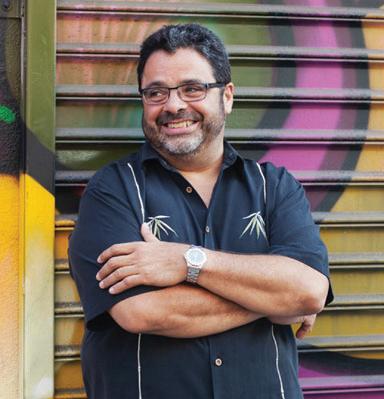

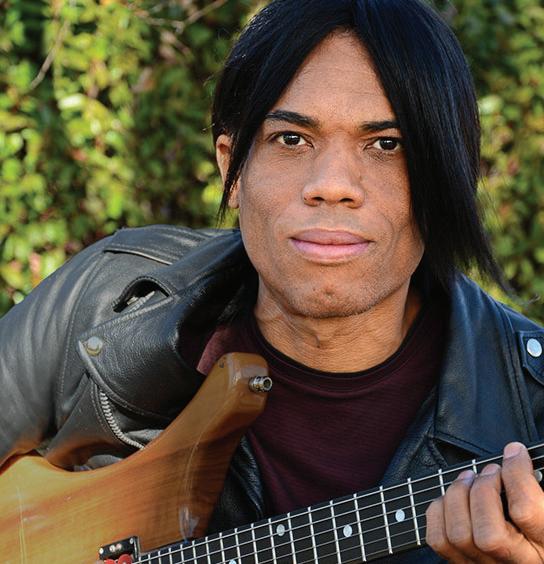






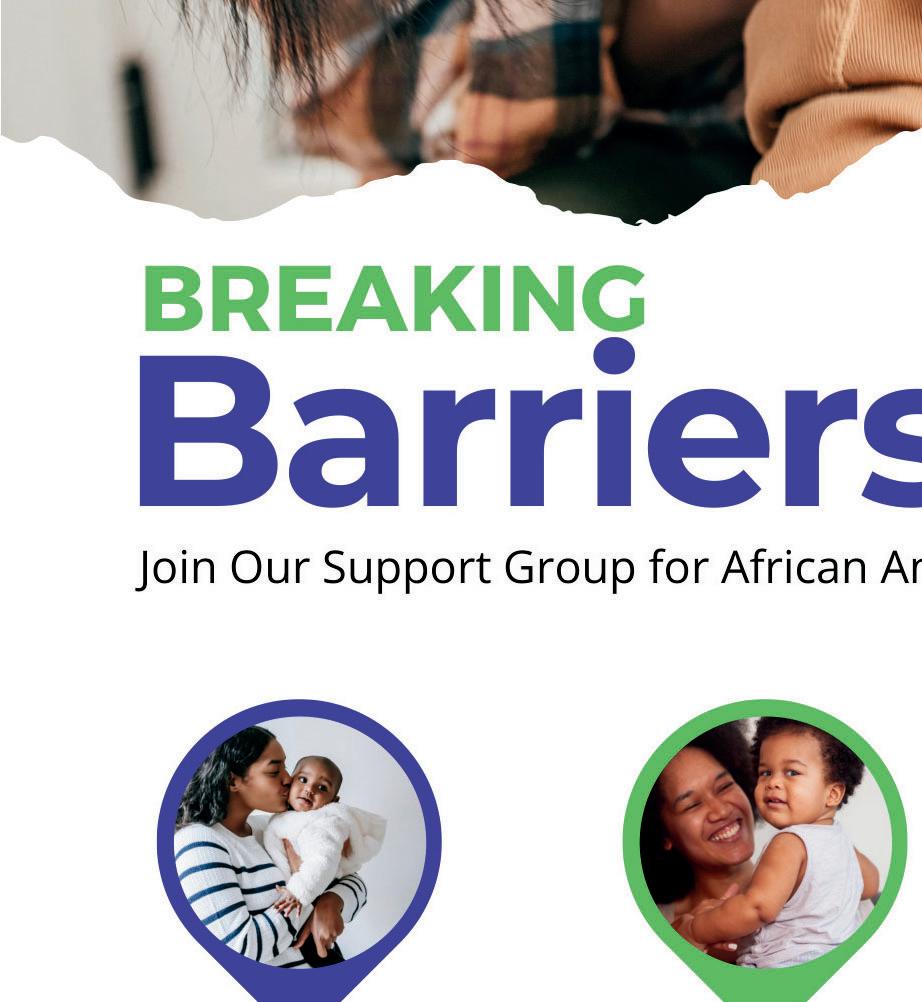
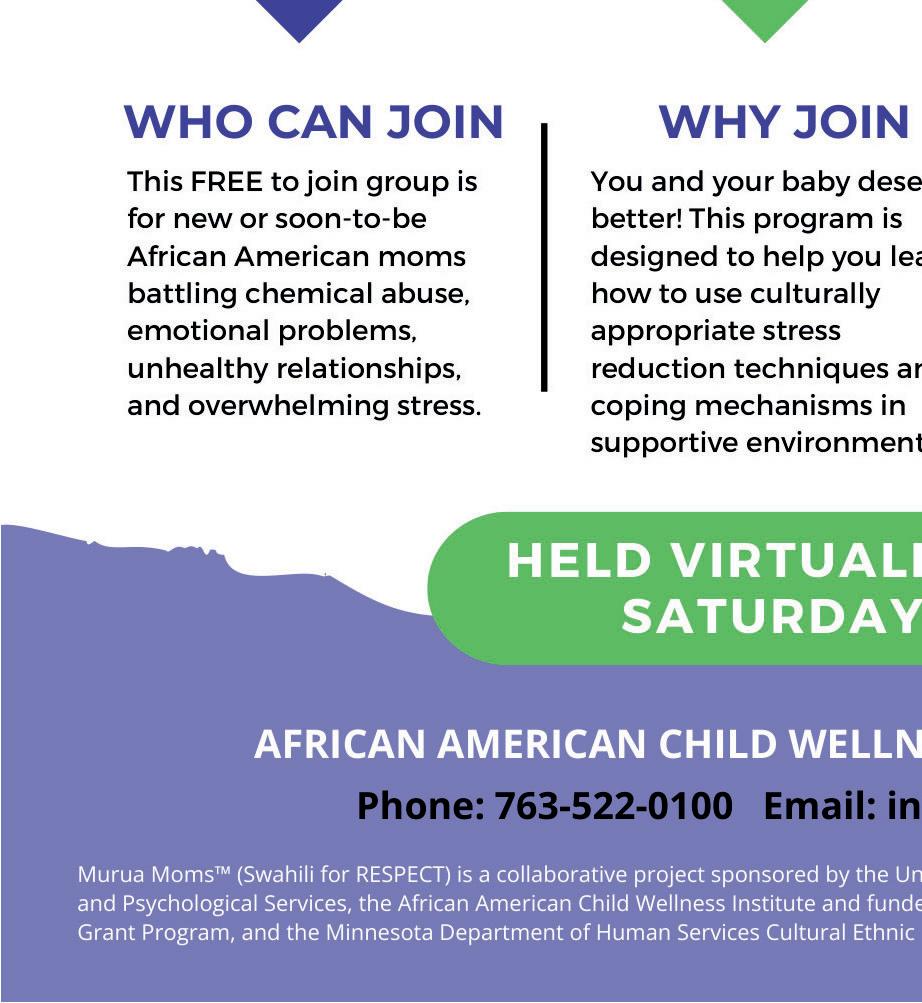



For almost a decade, Americans have been scratching their heads over the meteoric rise of Donald J. Trump’s political career. When thenCongressman Keith Ellison appeared on the July 26, 2015, edition of ABC’s “This Week” and warned that Donald Trump could become the Republican presidential nominee for the 2016 presidential election, the program’s host, George Stephanopoulos, laughed along with the show’s other panelists and stated, “I know you don’t believe that.”
Now, eight years after Keith Ellison’s warning, America has witnessed multiple instances of Donald Trump’s deplorable behavior and suffered through an ugly period while Trump occupied the White House. Trump was impeached twice and now stands indicted multiple times for crimes related to his misconduct before, during
and after his term of office. Apart from those antebellum presidents who were enslavers, Donald Trump has been the most noxious individual to hold this nation’s highest office. Any clear-thinking American would be hard-pressed to name a single admirable characteristic this man possesses. Yet, millions of Americans are keen to see him returned as head of state.
Trump’s popularity with a large segment of American voters should not be a mystery to anyone who has paid attention to American history and has a clear understanding of the dominant foundational myths of American culture.
The history of this country is one of oppression and abuse. Beginning with Christopher Columbus, European imperialism has driven the enslavement and genocide inflicted upon the indigenous people of this land. A report written in 1495 – (only three years after Columbus first landed in the Western Hemisphere) – describes how Columbus and his followers
captured more than 500 Arawak men, women and children to be sold in the slave markets in Spain. This report also describes how approximately 200 of those captives died during the voyage eastward over the Atlantic Ocean and their bodies were dumped into the ocean.
The diaspora of Europe that spread across North America in the years following Columbus’ voyages brought with them death and misery to the people they found here as well as to the people they dragged here in chains. In the ensuing centuries, imperial invaders and colonizers gained great wealth by exploiting the land and labor of others.
This is not a history of which anyone could be proud, yet nationhood demands heroic myths that extol the virtues of the ancestors. Those founders, particularly the founding fathers, were practically deified, as evidenced by the famous painting in the dome of the U.S. Capitol titled, “The Apotheosis of Washington.” This painting depicts the first president
accompanied by female figures representing Liberty and Victory, and surrounded by several other representative figures, being elevated into heaven. The literal meaning of “apotheosis” is to make one a god. This painting bears no evidence of the existence of the enslaved who were forced to toil without compensation at Mount Vernon and other plantations under Washington’s control. Nor does it depict the people of the First Nations who were forced to withdraw from their ancestral lands to give way to the colonial invaders.
Our national myth is that America was settled by good white people who brought this land to its full potential through hard work and virtuous behavior. Any narrative that contradicts this myth is erased or banned, hence the fanatical surge of book banning and efforts to hide historical events that speak truth to the American myth. But this begs the question: Why is it necessary to distort our history and obscure facts?
The answer lies in
the fact that America is, and always has been, a corporate enterprise. The first invaders and the founders were seeking to gain or maintain wealth. And corporate enterprises, whose sole existence is wealth driven, operate under a management style known as the “mushroom principle” where employees – like mushrooms – are kept in the dark and periodically given a load of manure.
Donald Trump also applies this principle as his political strategy. He merely substitutes the “American enterprise” for “corporate enterprise” and “voters” for “employees.” Trump was hatched in a corporate environment and understands well the mushroom principle. With an uninquisitive mind and a significant bent towards sloth, Trump is a perfect fit for a large segment of America’s voting population. Sloth is not merely laziness; it is a condition of sluggish mentation and selfcentered indifference. Trump has no interest in improving his mind, and neither do his
followers. Herein lies their connection. Trump, as a stupid person, is the ideal candidate for a stupid voter. People who do not want to know the truth of history, or the nature of their own characters, are delighted by Trump’s matching qualities.
An uneducated, unthinking and uninquisitive electorate will vote for a candidate with matching characteristics. Trump is clearly an idiot; even his diehard supporters must recognize this. But they see themselves in him. And they see their support of him as a form of self-preservation. As long as Trump appears to be stupid, stupid people will vote for him.
Oscar H. Blayton is a former Marine Corps combat pilot and human rights activist who practices law in Virginia. His earlier commentaries may be found at https://oblayton1.medium.com/
The post, “Trump’s Secret Weapon: Stupidity” appeared first on The Toledo Journal.



